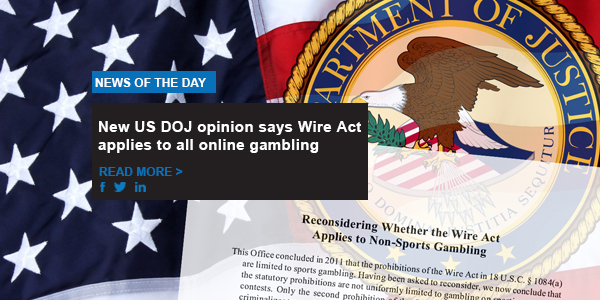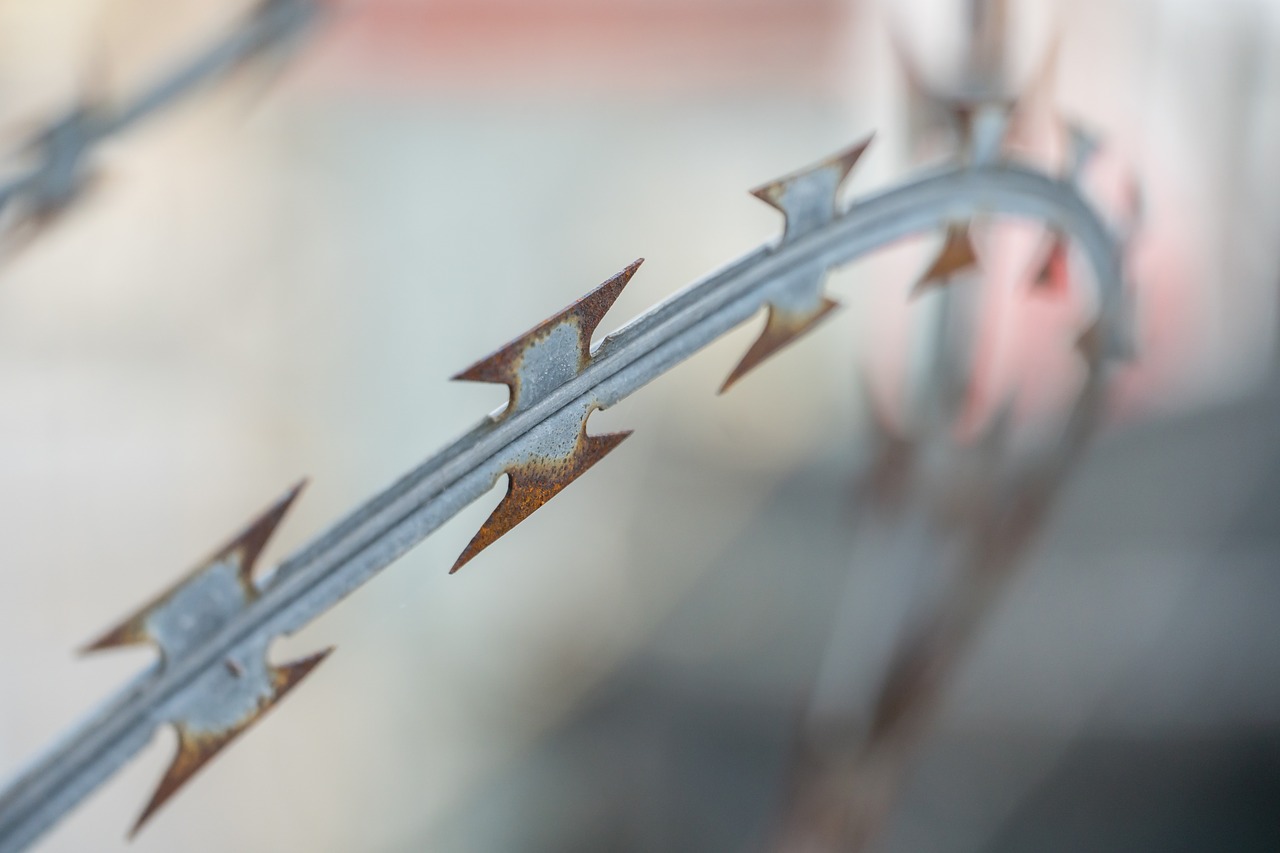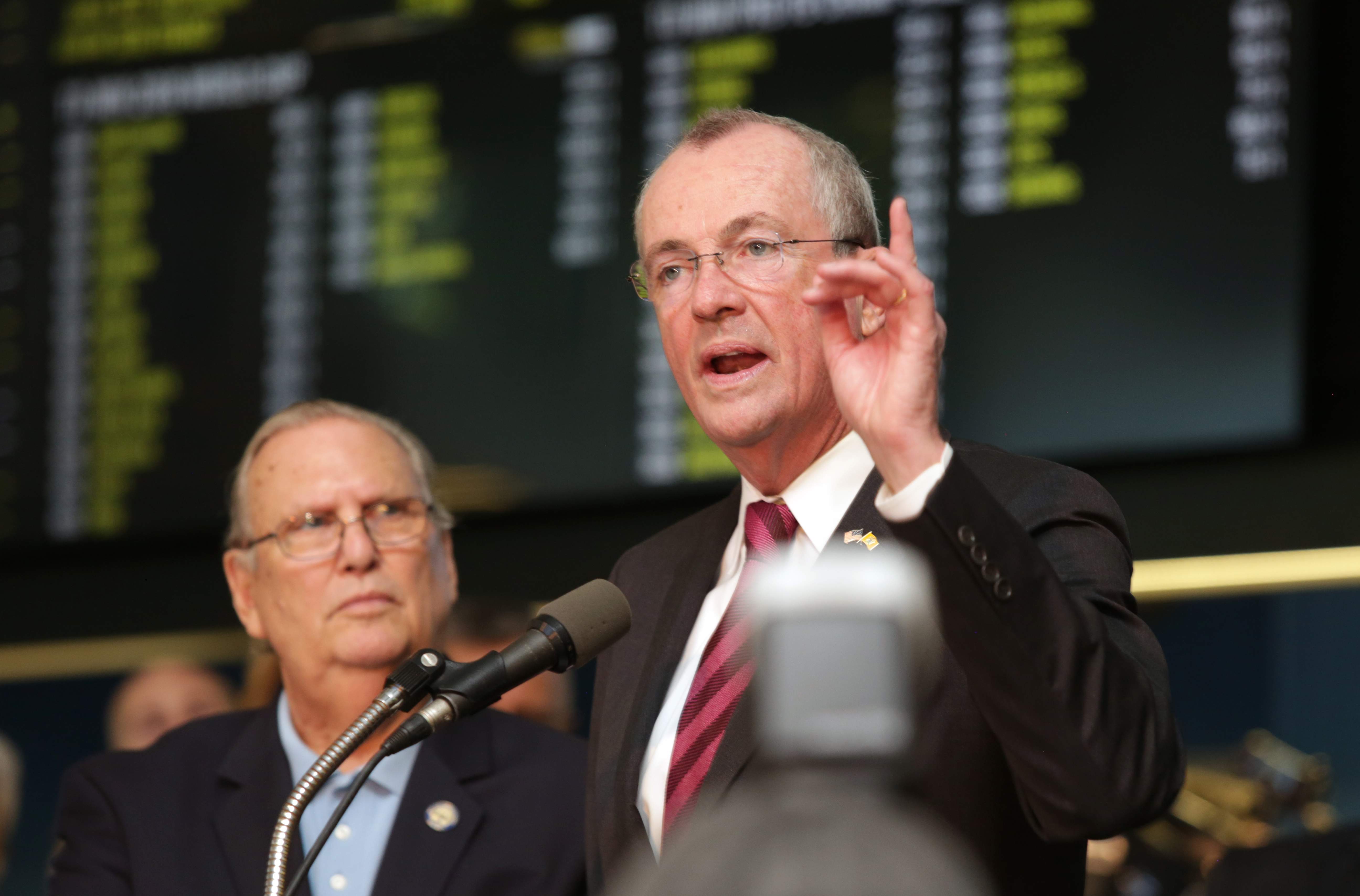Doj Online Gambling Opinion
WASHINGTON—A recent U.S. Department of Justice opinion could strengthen the federal prohibition of online gambling across state lines.
- Doj Online Gambling Opinion Check
- Doj Online Gambling Opinion Survey
- Doj Online Gambling Opinion Form
- Doj Online Gambling Opinion Report
The Justice Department could struggle to defend a new opinion that threatens the legality of online gambling, an analyst has said. The DOJ now says the federal Wire Act, which prohibits. Following weeks of whispering as to the Department of Justice’s (DOJ) willingness to once again ban online gambling on the federal level, the hammer has finally come down. In an opinion dated November 2 of 2018, which was only made public last week, the DOJ’s Office of Legal Counsel revised a previously issued interpretation of the Wire Act. “The 2018 DOJ opinion insinuated that the federal Wire Act prevents all state-authorized and regulated online gambling by interpreting that transmitting sports wagers in interstate commerce also bans bets where both the bettor and the sports book operator are in the same state.
Steven Engel, assistant attorney general for the office of legal counsel, issued an opinion that the Justice Department “incorrectly interpreted” the Interstate Wire Act of 1961 in a 2011 ruling that narrowly applied its prohibitions to sports gambling.
Rodger Weems, chairman of Texans Against Gambling, welcomed the decision and its return to a pre-2011 interpretation of the Wire Act.
“While it is unproductive to speculate about motives, one thing is clear. The U.S. Department of Justice decision to restore the efficacy of the Wire Act represents a return to the letter of the law. We can ask for nothing more and should accept no less,” Weems said.

Congress originally passed the Wire Act during the Kennedy Administration to combat organized crime by prohibiting certain interstate gambling operations.
In part, the act states, “Whoever being engaged in the business of betting or wagering knowingly uses a wire communication facility for the transmission in interstate or foreign commerce of bets or wagers or information assisting in the placing of bets or wagers on any sporting event or contest, or for the transmission of a wire communication which entitles the recipient to receive money or credit as a result of bets or wagers, or information assisting in the placing of bets or wagers, shall be fined under this title or imprisoned not more than two years.”
Conflicting interpretations
At the request of state lotteries in New York and Illinois, the Justice Department issued an opinion in 2011 to clarify whether it prohibited online lotteries. The Justice Department opinion at that time said the law applied only to sports betting, and several states expanded online gambling in response.

In Engel’s recently released opinion, he reached a different conclusion.
“The 2011 opinion, in our view, incorrectly interpreted the limitation ‘on any sporting event or contest’ (the ‘sports-gambling modifier’) to apply beyond the second prohibition that it directly follows: the prohibition on transmitting ‘information assisting in the placing of bets or wagers,’” he wrote.
He concluded “the statutory prohibitions are not uniformly limited to gambling on sporting events or contests,” and he determined enactment of the Unlawful Internet Gambling Enforcement Act did not alter the scope of the Wire Act.
“While the Wire Act is not a model of artful drafting, we conclude that the words of the statute are sufficiently clear and that all but one of its prohibitions sweep beyond sports gambling,” Engel wrote.
Websites catering to online gambling news carried articles headlined “New DOJ Wire Act opinion shakes maturing US gambling industry” and “Can US online poker survive the new DOJ Wire Act opinion?”
Les Bernal, national director of Stop Predatory Gambling, applauded the most recent Justice Department Opinion.
“Our fight is about compassion and fairness for all Americans. Commercialized gambling is a big con game based on financial fraud and exploitation, and online gambling is the worst of all,” Bernal said.
“The recent Department of Justice opinion simply restores the Wire Act to its original strength for the benefit of all citizens. It helps to prevent state governments from forcing a Las Vegas casino into every home, office, dorm room, smart phone and tablet, 24 hours a day, seven days a week.”
Deputy Attorney General Rod Rosenstein issued a memo saying the Justice Department will wait 90 days to implement the ruling to allow businesses time to adjust their operations.
Following weeks of whispering as to the Department of Justice’s (DOJ) willingness to once again ban online gambling on the federal level, the hammer has finally come down. In an opinion dated November 2 of 2018, which was only made public last week, the DOJ’s Office of Legal Counsel revised a previously issued interpretation of the Wire Act.
Under the 2011 opinion, the Wire Act of 1961 – a federal law prohibiting gambling-related business from being conducted across state lines via telephonic means – was ruled to be applicable only to sports betting. Prior to the 2011 opinion, the DOJ loosely connected the Wire Act to all forms of online gambling – including poker, casino games, lottery ticket sales, and sports betting.
Obama Admin DOJ Determined Limited Wire Act Scope
But when the DOJ under the Obama Administration took a second look, the Office of Legal Counsel determined that the Wire Act’s scope should be limited specifically to sports betting. This opinion paved the way for individual states to establish their own laws and regulations pertaining to any other form of iGaming.
Within two years of the 2011 opinion’s release, Nevada, New Jersey, and Delaware capitalized by legalizing online poker and/or casino gaming. As of today, that trio has since been joined by Pennsylvania, while several states have also legalized online sports betting courtesy of last year’s landmark ruling by the U.S. Supreme Court.
Nonetheless, the Trump Administration’s DOJ reversed course last week, writing that the Wire Act does indeed ban any and all gambling activity conducted via the internet:
“While the Wire Act is not a model of artful drafting, we conclude that the words of the statute are sufficiently clear and that all but one of its prohibitions sweep beyond sports gambling.
We further conclude that that the 2006 enactment of UIGEA did not alter the scope of the Wire Act.”
Rosenstein Provides 90-Day Window for Operators to Comply
As of now, there is no clear consensus on how the most recent opinion will affect statewide iGaming industries.


Thanks to an interstate gaming compact forged last year between Nevada, New Jersey, and Delaware, sites like WSOP.com and 888 Poker may already be in violation of the law.
But with several federal courts – including the Fifth Circuit and the First Circuit Courts of Appeals – previously ruling that the Wire Act’s ban is exclusive to sports betting, the new opinion is likely to face several challenges before it can be implemented.
In recognition of this legal quagmire, acting Attorney General Rod Rosenstein issued a memo clarifying that the new opinion will take effect after a 90-day window:
“As an exercise of discretion, Department of Justice attorneys should refrain from applying Section 1084(a) in criminal or civil actions to persons who engaged in conduct violating the Wire Act in reliance on the 2011 OLC opinion prior to the date of this memorandum, and for 90 days thereafter.
Doj Online Gambling Opinion Check
A 90-day window will give businesses that relied on the 2011 OLC opinion time to bring their operations into compliance with federal law.
This is an internal exercise of prosecutorial discretion; it is not a safe harbor for violations of the Wire Act.”
Sheldon Adelson’s Anti-iGaming Crusaders Celebrate Reversal
Reversing the 2011 Wire Act opinion has long been a pet project of Sheldon Adelson, the billionaire casino mogul and owner of the Las Vegas Sands Corporation who vehemently opposes all forms of iGaming.
Under the auspices of an Adelson-funded lobby group known as the Coalition to Stop Internet Gambling (CSIG), lawmakers on Capitol Hill and DOJ policymakers have been under pressure to reexamine the issue for the last eight years.
In a press release issued by CSIG, the group praised the DOJ for seeking a renewed federal ban on iGaming:
Doj Online Gambling Opinion Survey

Doj Online Gambling Opinion Form
“CSIG is pleased to see today’s decision by the Department of Justice to reverse an Office of Legal Counsel opinion that was as problematic legally as it was morally.
Today’s decision seamlessly aligns with the Department’s longstanding position that federal law prohibits all forms of internet gambling, as well as with Congress’s intent when it gave law enforcement additional tools to shut down the activity through the overwhelmingly-passed Unlawful Internet Gambling Enforcement Act in 2006.
Doj Online Gambling Opinion Report
Today’s landmark action to rightfully restore the Wire Act is a win for parents, children and other vulnerable populations.”